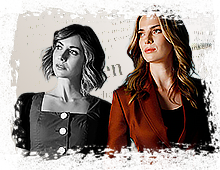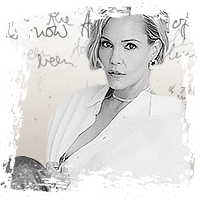

With her breakout supporting work in “Mad Men” and “Community” far behind her, Alison Brie has been fashioning a lead career by in part portraying characters who don’t usually see center stage. In 2020, she expressed a spectrum of mental illness in a quiet and bold performance in “Horse Girl,” a glass character study she co-wrote with director Jeff Baena. In “Spin Me Round,” Brie uses that same gentleness and actor’s empathy for a woman named Amber, who Brie describes as “very passive for a film’s protagonist.” A manager of an Olive Garden-like Italian food franchise, Amber is sent on a special work retreat in Italy with stars in her eyes. The trip proves to be a manipulated rip-off in more ways than one, especially when she meets franchise owner Nick (Alessandro Nivola), who is nothing like she had dreamed him to be.
Brie co-wrote “Spin Me Round” with Baena, and is joined on-screen by an ensemble cast that includes Debby Ryan, Molly Shannon, Zach Woods, Tim Heidecker, Ben Sinclair, Ayden Mayeri, Fred Armisen, Lauren Weedman, and Aubrey Plaza.
RogerEbert.com spoke to Brie about the collaborative energy of “Spin Me Round,” its personal components, the time she got nervous meeting Frances McDormand, and more.
Do you believe in the idea of “never meet your heroes”?
Yes, I do believe in the idea of “never meet your heroes,” but y’know, probably because I know that I’m bad at it. Any time I have met an actor that I really admire, it doesn’t go well. I feel so embarrassed, I think I get too nervous. So it’s not for the reason that I think you’re implying, normally people say it as if those people are going to let you down. But I think I let myself down in the interactions. I’m like, Why didn’t I say the right thing to Frances McDormand that time? That was a terrible interaction! I shoot a whole movie with Meryl Streep, multiple scenes, and never told her how much she means to me! I’m thinking, She doesn’t want to hear that, she’s heard that many times, just act! Just be professional! And then later I’m like, I feel like you could have told Meryl how much you love and admire her [laughs].
What did you say to Frances McDormand? Do you remember?
Oh god, it’s like … Yes, I remember unfortunately [laughs]. It was a few years ago when “GLOW” was on the awards circuit a little bit with “Three Billboards Outside of Ebbing, Missouri,” and so I had heard that she was a fan of the show because a couple other people on “GLOW” had run into her and been like, “Frances McDormand said she’s a big fan of the show!” So then I ran into her at the SAG Awards, and I knew somebody who was at the “Three Billboards” table, so I went over to say hello. I was a little intoxicated and she sort of turned and there was Frances McDormand, who I just admired all of my life. And she goes, “You!” And I go, “You!” And then she goes, “No, you!” And then I go, “Yooouuu!” And she’s like [annoyed voice] “You.” And I was like, “Yooouuu!” I could just sense like, the bit went too long. Why did you keep saying “You!”? Eventually she paused and I said, “Thank you so much, big fan! Sorry!” [laughs] I’d love a re-do.
As a writer on “Spin Me Round,” how do you find this balance of being critical of these gloopy institutions—I keep thinking about the alfredo sauce in the bag from the opening credits—without dumping on people like Amber? I’m curious how you and Jeff Baena did that in the writing.
Sure, I don’t think it’s ever our intention to dump on anything. I think that we see the inherent comedy in a really Americanized Italian restaurant chain, whisking people away to a program that’s equally as Americanized as the restaurant itself. There’s an inherent comedy there, but I think as an actor and a writer, I approach all of the characters with compassion. I think Jeff is the same way, we love all of the characters that we create and try to see from everybody’s perspective within the story, and what everyone wants and is hoping for, and how those expectations are dashed. I think comedy needs to have heart to it, to keep it relatable. And it’s never fun to watch people or characters being made fun of, I think you want to find what is relatable about each character and then put them in awkward situations, and that’s where the comedy comes from.
What’s relatable to you, then, about Amber?
I love Amber because she’s such a pushover, very passive for a film’s protagonist [laughs]. Which to me feels very true to life; not every person in their day-to-day life is like, “Here’s what I want, and I’m going to go after it!” I’ve certainly had a drive that Amber doesn’t have, but I’ve also spent time in my life especially in my twenties being the same kind of people-pleaser, being put in uncomfortable situations but not wanting to rock the boat, not wanting to make the other person uncomfortable, possibly at my own expense. This journey for Amber is about self-empowerment, it’s about her being pushed to the brink of uncomfortable-ness, to try to take control of her own destiny. And she’s not good at it! She’s still figuring it out. But I find that especially relatable. And a lot of her interactions with Nick are based on some of my real life experiences with men in the past, and exploring those strange dynamics of being put in awkward or uncomfortable situations where you feel paralyzed in, and unable to get out of.
I was thinking about Hollywood, and these power dynamics in this Italian restaurant business that are like a food chan. And I’m wondering if that’s reflective for you and Jeff as people who go back and forth between mainstream and indie projects.
Certainly there’s a lot of play with the power dynamics between these characters, yes. But I wouldn’t say that we had an agenda for it to mirror Hollywood, or even any agenda at all. I think what I love about working with Jeff is that we get so immersed in the story and just following something creatively and artistically, to what we feel is its inevitable conclusion, and diving into the characters and making them nuanced and personal and infusing our own personal stories into that, in a way that feels true to life because it is. I feel like we stop just short of feeling like we have to comment on it, we’re sort of like, “We’re gonna tell a story and we’re gonna present some behavior. We’ll leave it to what you want to take away from this behavior.” And some of the characters in this movie are an interesting litmus test, I think it will be interesting to see how people react to them.
Was the process of making this influenced by how “Horse Girl” turned out? How you approached the character, or the collaboration with Jeff?
Well, the whole thing, really writing this together, came out of the “Horse Girl” experience. Because “Horse Girl” was the first film that Jeff and I wrote together, but the third film of his that I had been in. It was just a great experience, so more so just coming out of that and being a real magical experience, a real organic experience. Then after that, Jeff brought this idea to me, which he had been thinking about prior to “Horse Girl.” He had this idea right after we shot “The Little Hours” and wanted to get back to Italy, so for him, “Horse Girl” was like a minor detour. But we found a great partner in each other, so it all sort of circled around. And the Duplass brothers’ production company were a big part of that and this as well … it more felt like a natural evolution.
It’s interesting to see this movie as reflective of your creative relationship with Jeff.
Yeah, definitely. And the process then became very similar, the way we worked on “Horse Girl” and then we worked on this. “Here’s the seed of the idea, here’s the scope of it, and now let’s get in and flesh it out” and it ends up being a lot of time just talking. Talking about the characters, just talking about what we think is funny or what could be funny, and if that thing that we think is funny fits into the story or does it not? And telling personal stories, and some of those personal stories make it into the final product as is, and some of them it’s just a feeling or idea that we are able to infuse into a character or a moment.
So usually the personal angle is very important for this type of comedy.
Absolutely! I think so, for me, and probably because I don’t have a lot of experience writing [laughs]. So I gotta mine what I got!
How do you like to be directed?
Um, still figuring that out. I think I’ve been lucky working in film and TV, because on the TV side I’ve been able to work with so many types of directors, even though it’s inherently different because they’re not “the boss” on a TV set, right? The director is sort of the guest that’s coming in to stay in line with the tone of the show. But still, you’re privy to a lot of different types of process.
I like a confident director, I’ll say that. I do not like a wishy-washy captain, it doesn’t instill confidence if they’re not confident.
What feels most comfortable for you in terms of a director helping you find a character?
It’s so interesting, because it’s kind of different every time. When I meet a new person I like to intuit their creative energy … even when I look back on the time I spent working on “Mad Men” and “Community” simultaneously, I used to joke with my “Community” cast, “You guys wouldn’t even recognize me on the ‘Mad Men’ set, I’m like a different person.” Because the energy over there is very different. I want to like, acclimate to that, and that way the process for me was different on “Mad Men” than it was on “Community.”
But I always think it’s nice when the director gives the actor some room to make some choices before exercising their will. But I’m happy to execute a director’s vision of course [laughs]. It’s nice I think to be given the respect and the space to try some things out. I think even with my experience on this, as a writer and producer, one of the exciting aspects about the project is watching the actors that we bring in to play these parts, and what they do with it, their unique energy.
It seems like that’s where the truth comes from with a movie like this, that if the collaboration is good.
Yeah, totally. I like to be a little bit malleable, even though I have my routines mentally as an actor. But energy wise, yeah, I feel like I’m not like, “Well THIS is what I do and who I am every time … bend to me!” I think it’s nice, in all life situations, to have a give and take. But not to lose yourself in it … the way that Amber does often in this movie. Brought it back around [laughs].
“Spin Me Round” will be available in theaters, on demand, and streaming on AMC+ on August 19th.
Source: RogerEbert.com



























